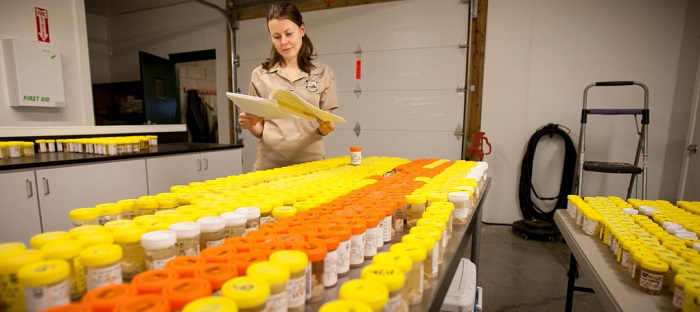FRANKFORT, Ky. — Kentucky took another step last week in its decade-long effort to keep chronic wasting disease from penetrating its border and infecting the state’s deer and elk herds.

The move - to prohibit hunters from bringing any harvested deer, elk, moose or caribou (cervids) into Kentucky unless the brain and spinal cord have been removed - came shortly after a preliminary positive detection of chronic wasting disease (CWD) in 10 white-tailed deer in southwest Tennessee. Hunters who legally harvested a deer in that area and brought it into Kentucky before the expanded ban went into effect were not in violation of the law.
For the Kentucky Department of Fish and Wildlife Resources and its partners, focus on the always-fatal neurological disease that affects members of the deer family intensified in 2002 after the first CWD detection east of the Mississippi River.
The disease can be devastating to animal populations and damaging to the economic activity associated with them. There are no known treatments or vaccines for CWD at this time.
In Kentucky, statewide surveillance to monitor for the disease in deer and elk has been ongoing since 2002 with close to 30,000 samples tested to date. So far, the efforts have paid off. Chronic wasting disease has not been detected in Kentucky. On a national level, however, there are now more states with CWD than not.
“It’s on our doorstep and ringing the door bell,” said Gabe Jenkins, Deer and Elk Program Coordinator for Kentucky Fish and Wildlife. “As an agency, we will continue to do everything we can going forward to protect our deer and elk herds from this disease.”
Tennessee’s preliminary positive CWD detection – now confirmed – prompted Kentucky Fish and Wildlife to expand its ban on bringing any deer, elk, moose or caribou harvested outside Kentucky into the state. In Kentucky, the ban now applies to cervids harvested from all U.S. states and all foreign countries. Sixteen other states have similar bans in place.
Hunters may bring into Kentucky quarters or other portions of meat with no part of the spinal cord or head attached, boned-out meat, antlers, antlers attached to a clean skull plate, a clean skull, clean teeth, hides and finished taxidermy works.
The Kentucky Fish and Wildlife Commission took the proactive step of proposing the stronger protections for the state’s deer and elk herds earlier this year. The findings in Tennessee prompted Kentucky Fish and Wildlife to seek to speed up the process.
Hunters play a key role in the management of Kentucky’s deer and elk herds, and their continued assistance will be critical to maintaining the high quality and health of those herds.
There are two primary ways CWD can become established in a new area: through the importation of high-risk animal parts, and the importation of infected live captive cervids. Natural movements of infected wild cervids from CWD-positive areas also contribute to new cases but on a smaller scale.
“If you’re going to be hunting in other states over the holidays, and you’re not planning to quarter or cape out your harvest, spend some time before you go to locate a processor or taxidermist in that state,” Jenkins said. “If you’re more the do-it-yourself type, and haven’t tried to quarter or cape out a deer, there are good videos online that will teach you the basics.”
Kentucky Fish and Wildlife conservation officers started surveying deer processors and taxidermists in western Kentucky the day after Tennessee’s announcement in an effort to determine the number of deer from that state that have been received at those businesses.
Officers will continue to survey across the state and work with processors and taxidermists to ensure hunter-harvested deer from Tennessee are disposed of properly.
Hunters who brought deer harvested in southwest Tennessee into Kentucky before the ban took effect are encouraged to contact Kentucky Fish and Wildlife.
“If you harvested a deer in or around the CWD-indicated counties in Tennessee, brought the full carcass back home to process yourself and discarded the waste onto your property, the department would be willing to collect that carcass to satisfy the updated disposal procedures,” said Col. Eric Gibson, Law Enforcement Division director. “This was not a violation of law and will not be a criminal matter. Kentucky Fish and Wildlife wants to keep the state CWD free and leave nothing to chance.”









